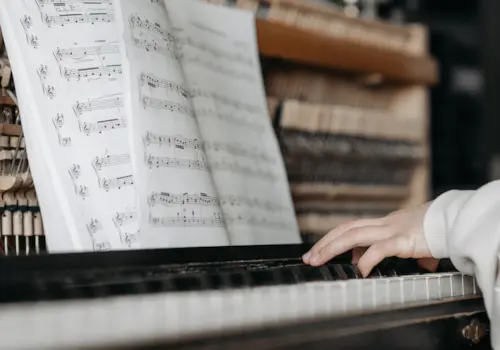22 September 2011
|
The renowned Irish pianist Barry Douglas gives a day-by-day account of being on this year's 2011 Tchaikovsky Piano Competition jury, and sees what has changed since his own victory in the same competition 25 years ago ...
13 June.I arrive in Moscow on Aeroflot from Paris and check in at the new Moscow Ritz-Carlton near Red Square. I spot an English jury member without luggage, frantically calling on his mobile. I am jet-lagged and nervous about being on this important jury. I had been conducting and playing the week before in St Petersburg and had gone home to Paris for two nights – not a great move! The hotel staff is courteous and smiling as they take my credit card for incidentals. I repair to the bar for a nightcap before sleeping and have a sandwich. I won 2,000 roubles in 1986 as part of my first prize. It took me three hours in the big department store GUM on Red Square to get through the money – in those days you couldn’t change the money to foreign currency. I shiver when I get the bill tonight for the sandwich and wine – 2,000 roubles!
14 June, jury meeting. At the sumptuous (included in the price) breakfast we are told that the jury orientation will be at 3pm. I return to my suite and practise Saint-Saëns, Brahms and Kevin Volans. Yamaha have given all the pianists Clavinovas. I can use my Bose headphones, which I bring everywhere! We are advised not to chat with our colleagues about competitors. Richard Rodzinski, the director, admits he can’t stop us calling each other by phone, but we should try and limit our discussions to the jury room. The opening gala concert and dinner is very impressive, with Prime Minister Vladimir Putin and Maestro Valery Gergiev making speeches. The French champagne flows in the Ritz-Carlton and I’m stunned by the difference a mere 25 years can make to a competition and a country!
15 June, start of first round. I am determined to be serious about being a jury member. I always avoided such invitations in the past. I am rested and alert. Every note and musical expression I absorb and endeavour to understand. I take notes but never stop listening. I look at my colleagues but we don’t betray our opinions to each other. The announcer at the Bolshoi Hall of the Moscow Conservatory introduces jury members one by one before each session. As the competition progresses, we cheer for each other and try to guess who will get the audience clapping loudest!
18 June, last day of first round. For the jury, it’s a ten-minute walk from the hotel to the Conservatory and we chat en route. We make small subtle comments about competitors but we are all determined to follow the rules. The press is very intrigued by the new format of the competition. They are hungry for interviews and I’m flattered when they tell me that a press conference will be organised as there are so many requests. I notice very quickly that the cello jury is full of devilment and laughs a lot – this becomes really apparent on the last night when I sit at their table for dinner! The piano jury is much more modest and mild. What does this say about pianists?
It was a fairly quick debate over the first round. We agreed on all the pianists for the second round except two. I announce the results (as Secretary General) in Russian. Maestro Gergiev would like Russian to be the first language and I’m determined to play my part.
19 June. A day off. I practise hard for four hours and then go for a photo shoot in Gorky Park. I have coffee in Red Square and then I go see the wonderful cemetery Novodevichy. There I linger by Chekov, Gogol, Khrushchev, Richter, Gilels, Scriabin, Prokofiev, Rostropovich and Shostakovich – I’m quiet and in awe. [Continued...]
This article appears in the current issue 62 of Pianist. You can order a copy right now, or take out a yearly subscription







